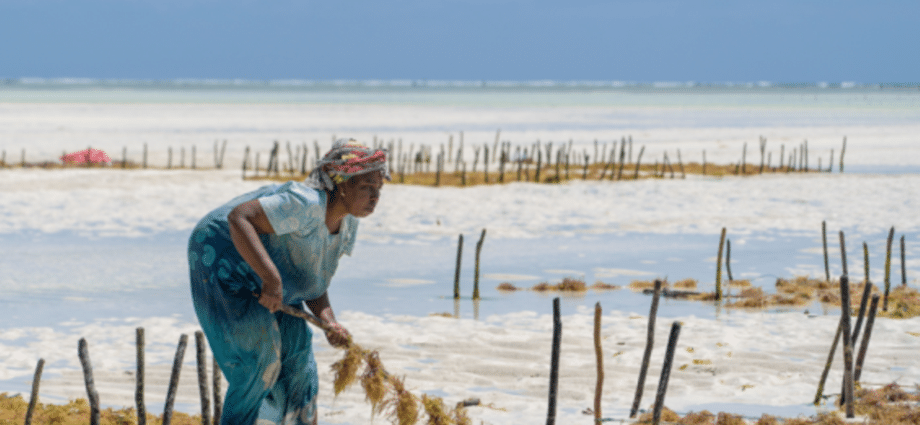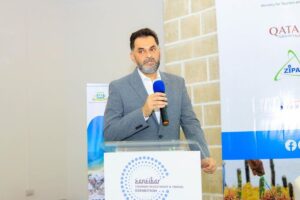
Unguja. Some women in Zanzibar are now embracing mixed farming, a sustainable practice that utilises small plots of land while conserving the environment, in attempt to addressing climate change.
Mixed farming integrates crops and trees in a single area to yield social, economic and environmental benefits.
It addresses land scarcity and provides solutions for energy needs, while promoting food security, absorbing carbon dioxide, improving nutrient cycles, conserving soil moisture, and increasing farmers’ income.
Despite agriculture employing approximately 35 percent of Zanzibar’s population, women’s participation in the sector remains limited.
The ministry of Agriculture, Irrigation, Natural Resources, and Livestock states that agriculture—which includes crops, livestock, and forestry—continues to be a critical pillar of Zanzibar’s economy, directly supporting the livelihoods of many.
Historically, women’s involvement has been constrained by lack of land ownership and societal perceptions.
Agricultural expert Hussein Ali Ame emphasises that mixed farming reduces investment costs, optimises land use and improves family nutrition.
In interviews, women farmers in Uzi and Ng’ambwa shehias in South Unguja shared how they have embraced mixed farming despite numerous challenges.
Aisha Abdalla Ahmed, a farmer from Uzi, explained that mixed farming offers significant economic and food benefits while preserving the environment.
“We now have great hope for better harvests compared to the past,” she said.
Similarly, Amina Rashid from Ng’ambwa noted that women in her community were traditionally excluded from farming due to lack of land and cultural beliefs that relegated women to household duties.
“Education has played a key role. Today, we’re fully embracing mixed farming, growing a variety of cash and food crops simultaneously. If one crop fails, another succeeds, giving us hope and boosting our economy,” she said. However, challenges persist. Najjat Msimu Hassan, another farmer, highlighted the physical demands of farming, stressing the need for male support to achieve their goals.
She also raised concerns about access to quality seeds, particularly avocado seedlings, which often fail due to the region’s soil and environmental conditions.
Farmers like Mtoro Simai Vuai in Ng’ambwa are working hard to improve their livelihoods through farming, despite limited support.
“Since learning about mixed farming, women have become more active. However, we still need male assistance to succeed,” she said. She said access to water remains a major challenge, calling for the construction of wells for irrigation, as existing sources are distant.
“If we had wells nearby, our productivity would have increased significantly. Water scarcity is a major obstacle to our economic progress,” she said.
Men in these communities acknowledge the growing involvement of women in farming. Malik Mbaraka Makame, a resident of Ng’ambwa, said mixed farming has been transformative but stressed the importance of collaboration between men and women.
“Women’s efforts are visible but they need men’s support for tasks that are physically demanding,” he said.
Ahmed Ali Mussa echoed such sentiment, noting that while many men support women farmers, they are often constrained by other responsibilities.
“Women can achieve a lot with proper resources, land and tools. Many of us try to help, but it depends on the situation,” he said.
Othman Mwinyi Haji, Sheha of Uzi, highlighted environmental issues like seawater intrusion caused by mangrove deforestation. This has increased salinity levels, affecting crops.
“In the past, seawater encroached only once a year, but now it’s a daily occurrence. Despite reforestation efforts, the problem persists,” he said.
The Zanzibar Women Leadership in Adaptation (ZanzAdapt) project aims to reach 4,000 farmers, 80 percent of whom are women. The initiative, supported by the International Forestry Organisation (CFI), Tanzania Media Women Association (TAMWA) Zanzibar, and the Pemba Forestry Association (CFP) with funding from Global Affairs Canada, focuses on equipping farmers with skills to adapt to climate change.
“Women are among the most affected by climate change. Empowering them with knowledge and income-generating opportunities will help build resilience and promote environmental conservation,” said Shaaban Peter, a project officer.
The programme has distributed banana, pineapple, lime and avocado seedlings to over 300 farmers while training them on climate-resilient farming techniques.
The Ministry of Agriculture’s 2024/25 budget prioritises irrigation for rice production, targeting 1,928 hectares of irrigated land.
Agriculture minister Shamata Khamis Shaame emphasised the ministry’s commitment to increasing productivity through modern farming techniques, market access and resource conservation.
The ministry’s permanent secretary, Mr Khamis Ali Juma, outlined a strategic plan to revitalise agriculture across Zanzibar, aiming to boost the sector’s contribution to the economy.














